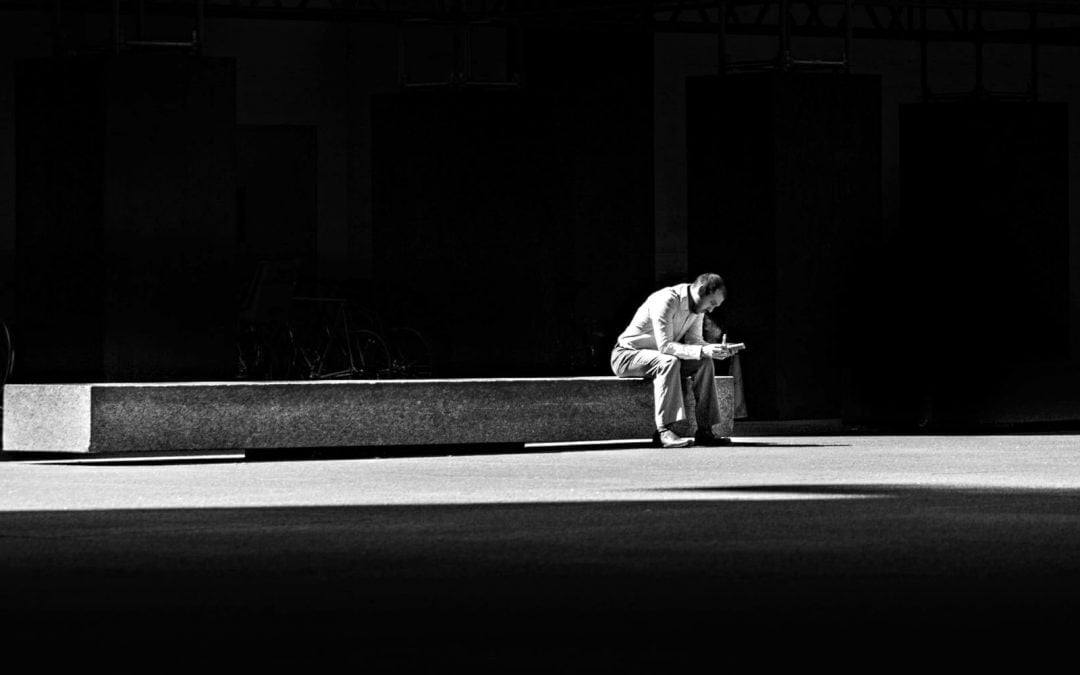Environments matter a lot.
“Environments are not passive wrappings, but are rather, active processes which are invisible,” said Marshall McLuhan (1911-1980), a Canadian educator, philosopher and scholar.
They don’t come right out and yell at us, “Feel this way!” but they are constantly informing us about how we should feel and ways we should act.
So, if we desire to call forth certain actions from ourselves and from our children, it would be a good idea for us to consider thoughtfully the environment we are immersed in and create in our communities of faith.
My husband often tells me we are “fish who don’t see the water,” meaning we just go about our lives without really noticing the atmosphere we are submerged in, just breathing it in and out as if it were not there.
I remember an experience once where I was invited by Rick Lawrence of Simply Youth Ministries to “see the water” – and I’ll be honest, it wasn’t the pretty clear-blue waters of the Caribbean – it was muddied and dirty and polluted, and frankly, not a nice place to be.
He led us through a diagnosis of the environment in which our kids are growing up. Consider these things carefully, just as you did your surroundings a minute ago, and think about the feelings these elements conjure up in you.
We are living in a marginless world in which eight out of 10 teens never turn their cell phones off and most send from 60 to 100 texts every day.
They are constantly connected and when they disconnect, there is anxiety, probably partially because this constant connection has changed their brain chemistry to be more reactive and less thoughtful.
Our culture is characterized by the ideals of “more, fast, easy and fun,” and parents self-describe themselves with words like worried, fearful, distracted and overwhelmed.
So, how do we feel? We feel tired. So, we look to the church.
Surely there, where we serve a Savior who says, “Come to me all who are weary and heavy laden and I will give you rest,” we will find a place of refuge, shelter from the “go, go, go” lifestyle and a place where relationships are fostered with trust and grace.
Surely here, we will find a hope, a God who invites us into community and gives strength to the weary.
Surely here, our kids can see consistency in a world of variability, welcome in a world that’s too busy for hospitality, margin and space to grow in a world that demands constant connection and endless going.
What do we find? And let’s be honest – for just a moment, let’s see the water.
The number-one reason millennials and Gen Z point to for why they leave the church is not hypocrisy (that was my generation) and not because of new experiences (that was my parents’ generation).
The number-one reason they leave is because they feel like they do not belong. Our environment has told them that.
Our way of doing church – of segregating the young and making church an “adult worship service” as I heard one prominent children’s minister describe it recently in a blog – of creating spaces that delight our senses and meet our personal preferences and “needs” tells a story to our upcoming generations: They. Do. Not Belong.
They’ve decided to swim in different waters. They are just as disconnected at church as they are in life. There’s no respite, no quiet calm, no gentle acceptance and gracious authority. They just feel alone.
I can see why. And I think if we are all honest, we see it too.
We need to change our filter. Our water needs to be cleaned. We need to see it so we can change it. Not that everything we’ve done has been wrong, but something we’ve done has not worked.
More and more, the church needs to become the place where all those things described above – marginless space, disconnectedness, constant separation and constant motion – no longer find a home.
Imagine instead a place where we come together, connected to one another as a body whose head is Christ; where we stop as a family – a community – and we breathe in rest and peace; where we replace the cry of “more, fast, fun and easy” with hearts of simple love, welcome and grace.
A simple place of worship and community and rest all because of Jesus who is the only “more” we need.
If our waters don’t look different, if we are offering more of the “more” and we are not creating space for meaningful relationships that stay grounded in a fluid world, why are we surprised when our children walk away?
We’ve got to see the water.
Editor’s note: A version of this article first appeared on Embree’s website, Refocus Ministry. It is used with permission.
A church planter with Plowshares Brethren in Christ in Lexington, Kentucky, she is a graduate of Wesley Seminary with a Master of Arts degree in ministry focusing on family, youth and children’s ministry.


